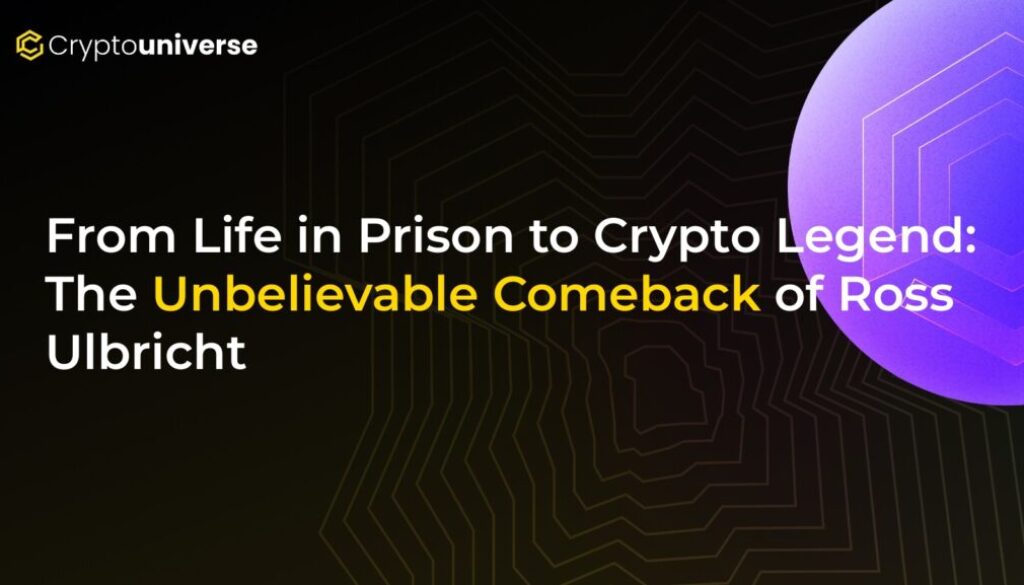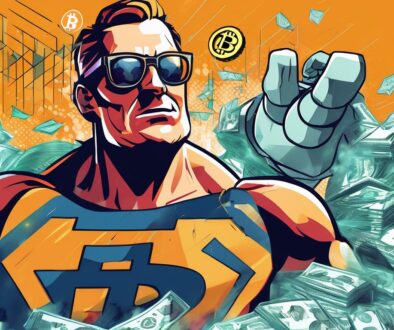From Life in Prison to Crypto Legend: The Unbelievable Comeback of Ross Ulbricht

A Crypto Pioneer Walks Free
In a move that sent shockwaves through the cryptocurrency world, Ross Ulbricht, the creator of the infamous Silk Road marketplace, is a free man. After serving over a decade of a double life sentence, Ulbricht received a full presidential pardon from Donald Trump, marking a stunning new chapter in one of Bitcoin’s most controversial stories. His release has transformed him from a cautionary tale into a celebrated figure, a living legend in a community that has long debated his legacy. This is the story of his fall, his time in prison, and his
Who is Ross Ulbricht? The Architect of the Silk Road
Before he was the “Dread Pirate Roberts,” Ross Ulbricht was a young man with a master’s degree in materials science and strong libertarian ideals. In 2011, at the age of 26, he channeled these beliefs into creating a website that would forever change the trajectory of Bitcoin: the Silk Road.
A Libertarian Vision on the Dark Web
The Silk Road was envisioned as a free-market utopia, an anonymous online bazaar where users could buy and sell goods without government interference. Operating on the Tor network and using Bitcoin for all transactions, it offered a level of privacy that was unprecedented. For Ulbricht and his supporters, it was a radical experiment in economic freedom.
Bitcoin’s First Killer App
When the Silk Road launched, Bitcoin was a niche asset, trading for as little as $0.50. The marketplace became its first major use case, proving that the nascent digital currency could function as a real-world medium of exchange. It single-handedly created a massive demand for BTC, introducing hundreds of thousands of new users to the concept of decentralized money and arguably saving it from obscurity.
The Fall of an Empire: A Double Life Sentence
The freedom offered by the Silk Road came at a cost. The site quickly became a notorious hub for the sale of illegal drugs and other illicit goods, attracting the full attention of federal law enforcement. In 2013, the FBI arrested Ulbricht in a San Francisco library, shutting down the marketplace and seizing its assets.
A Punishment That Shocked the World
The legal fallout was immense. Ulbricht was charged with money laundering, computer hacking, and conspiracy to traffic narcotics. In 2015, he was sentenced to two life sentences plus 40 years, with no possibility of parole—a punishment many felt was disproportionately harsh, especially for a first-time, non-violent offender. During the investigation, the U.S. government seized approximately 200,000 BTC connected to the site, a fortune that would be worth billions of dollars today.
The Unexpected Pardon and a New Beginning
For years, Ulbricht’s fate seemed sealed. However, a dedicated movement worked tirelessly to secure his freedom, arguing that his sentence was a grave injustice.
The “Free Ross” Movement
Supported by his family, friends, and a vast network of advocates in the crypto and libertarian communities, the “Free Ross” campaign raised awareness through petitions, documentaries, and public appeals. They painted Ulbricht not as a criminal mastermind, but as a political prisoner punished for creating a platform that challenged the status quo.
President Trump’s Clemency
In a stunning turn of events, President Donald Trump granted Ulbricht a full pardon in the final hours of his presidency. The crypto community erupted in celebration. In a poetic tribute, the pardon message from the President was permanently inscribed onto the Bitcoin blockchain, forever linking his freedom to the technology he helped popularize.
Reemergence as a Crypto Celebrity
Since his release, Ross Ulbricht has reemerged not as a pariah, but as a celebrated icon. His story of rebellion, punishment, and ultimate freedom resonates deeply with the anti-establishment ethos of cryptocurrency.
Uncovered Fortunes and Million-Dollar Memorabilia
His legendary status has been cemented by recent events. On-chain analysts have reportedly discovered dozens of old wallets linked to Ulbricht, containing around 430 BTC that were never confiscated by the government. Untouched for over a decade, this “dust” is now worth nearly $50 million.
Furthermore, a piece of his history—his final prison ID card—was recently sold at auction for an astonishing 11 BTC, valued at over $1 million. This demonstrates the immense cultural and financial value the community now places on his story and artifacts.
The Complicated Legacy of the Dread Pirate Roberts
Ulbricht’s legacy remains complex. To law enforcement and his detractors, he is the architect of a massive criminal enterprise that facilitated dangerous transactions. To his supporters, he is a visionary pioneer who pushed the boundaries of freedom and paid an unjustly high price. He is a symbol of Bitcoin’s early, wild-west days—a period of pure, unregulated, and anonymous peer-to-peer exchange.
His story forces the crypto world to confront its own origins and ideals. It raises critical questions about decentralization, censorship, and the role of government in a digital age. Regardless of one’s opinion, his impact on Bitcoin’s history is undeniable.
What’s Next for Ross Ulbricht?
Now a free man and a millionaire, Ross Ulbricht’s journey is far from over. The world watches to see what he will do next. Will he become an advocate for prison reform? Will he re-engage with the blockchain technology he helped pioneer? Whatever his path, one thing is certain: Ross Ulbricht has been cemented as a permanent and powerful legend in the crypto saga.


